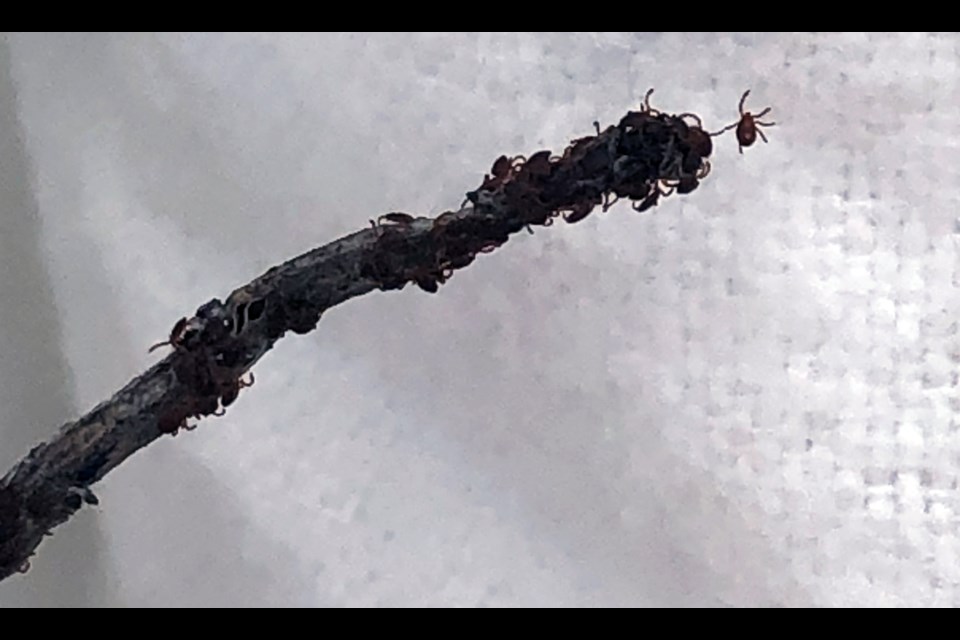When it comes to ticks, you’re lucky in Prince George if you’re a human or a dog.
The ticks we have in this area want nothing to do with you.
But if you’re a moose, you’re one of the favourite host targets of those nasty blood-sucking parasites
Northern B.C. is home to winter ticks, which latch on to moose, large deer, caribou or bison in the fall, digging into the skin to feed through the winter on the animal’s blood.
Ben Spitz, a UNBC researcher and PhD student in wildlife health and disease biology, moved to Prince George from Arkansas in January 2021 to study winter ticks and try to determine how widespread the problem is for moose populations already dealing with a warming climate and landscape change related to mountain pine beetle outbreak.
“Prince George is where the moose are,” said Spitz. “What I’m looking at is filling in the research gaps here on winter tick prevalence here because not much is known about the west. There’s a lot of moving parts right now and we don’t know the context of winter tick infestations during this flux between cutblocks and just the way the climate is changing around.”
Infestations of winter ticks can result in tens of thousands of the insects attaching to a single moose and in the worst cases some moose have been known to have more 100,000 of them buried in their hides.
“It can cause hair loss and anemia and it’s really bad for the calves,” said Spitz. “They’re not used to them, they’re small, surviving the winters, and that can be a huge issue.”
In fact, winter ticks are one of the leading causes of infant moose mortality in the northeastern U.S. and Newfoundland.
“We want to be careful and research around here so if that does happen we have the appropriate tools and understanding to combat it,” said Spitz, who focuses his studies south of Prince George and at the John Prince Research Forest near Fort St. James.
“I’m working to identify those areas where maybe winter ticks don’t do so well, or maybe you do some controlled burns on areas we do know where they survive.”
According to the BC Centre For Disease Control, the type of tick that does attach to humans and can cause Lyme disease is limited in its range to southern B.C. Spitz said ticks that carry disease are mainly located in the Lower Mainland and parts of Vancouver Island.


